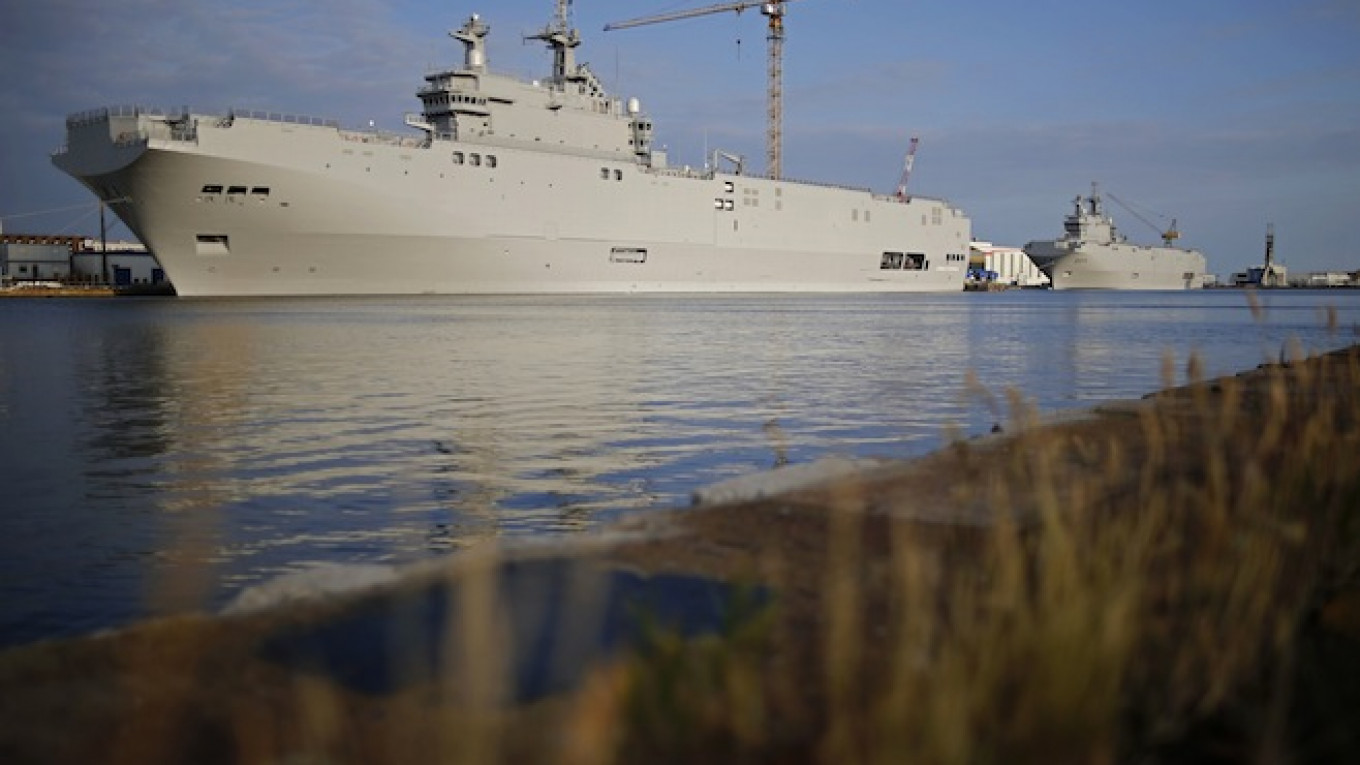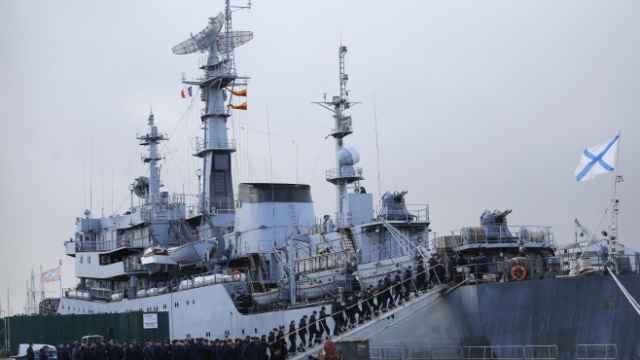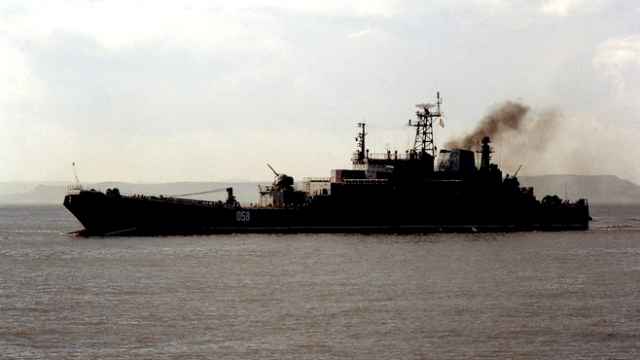France transferred several pieces of advanced technology and know-how to Russian shipbuilders before the Mistral warship deal was put on ice following Western sanctions, a news report said Thursday.
“According to the contract between the Russian Defense Ministry and France's DCNS [shipbuilding company] there are three types of technology that were transferred,” said Alexei Diky, the director of military-industrial cooperation at Russia's massive state-owned United Shipbuilding Corporation (USC), RIA Novosti reported.
Under the 1.2 billion euro ($1.4 billion) deal, signed in 2011, France was to build two Mistral-class helicopter assault ships for Russia and transfer shipbuilding expertise to the Russian shipyards involved in the ships' construction.
It had previously been unclear what exactly was transferred to Russia before France froze the delivery of the ships last year as relations between Russia and the West sank to a post-Soviet nadir over Moscow's annexation of Crimea and support for separatist fighters in east Ukraine.
Diky declined to comment on the first two types of technology transferred, but said that the USC’s Admiralty Shipyards in St. Petersburg received “the technology of large-block assembly used in the construction of the Mistrals.”
Large-block assembly is a shipbuilding process in which parts of a large ship are constructed separately in different places, then erected together in a single dry dock to form the ship's hull. The process is an efficient way of creating large vessels, but is logistically challenging.
The aft section of one of the Mistral carriers was built at USC's Baltic Shipyard in St. Petersburg, near Admiralty Shipyards. France shared the blueprints with the engineering center at Admiralty Shipyards and adapted them to suit the production capabilities of Baltic Shipyard, which had some previous experience with block construction, Diky said.
Though Russian shipyards have previously used block assembly construction, one of the reasons Russia was interested in building part of a Mistral vessel in St. Petersburg was to become acquainted with the more modern techniques employed by the French in block assembly of large carrier-type ships like the Mistrals.
Baltic Shipyard built the aft end of one of the ships under French guidance. The piece was then transported to DCNS's shipyard in Saint-Nazaire to be welded together with the other half.
Experience with large-block assembly could enable Russia to independently construct its own Mistral-type military vessels, or even a very large aircraft carrier, as has recently been discussed in the Russian defense community. The navy is interested in commissioning an aircraft carrier over the coming decades, but Russian yards have no experience building such large military vessels.
Contact the author at [email protected]
A Message from The Moscow Times:
Dear readers,
We are facing unprecedented challenges. Russia's Prosecutor General's Office has designated The Moscow Times as an "undesirable" organization, criminalizing our work and putting our staff at risk of prosecution. This follows our earlier unjust labeling as a "foreign agent."
These actions are direct attempts to silence independent journalism in Russia. The authorities claim our work "discredits the decisions of the Russian leadership." We see things differently: we strive to provide accurate, unbiased reporting on Russia.
We, the journalists of The Moscow Times, refuse to be silenced. But to continue our work, we need your help.
Your support, no matter how small, makes a world of difference. If you can, please support us monthly starting from just $2. It's quick to set up, and every contribution makes a significant impact.
By supporting The Moscow Times, you're defending open, independent journalism in the face of repression. Thank you for standing with us.
Remind me later.






